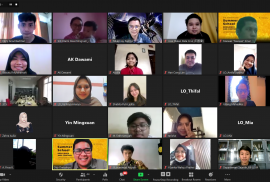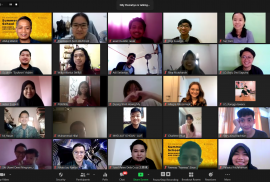The Covid-19 pandemic has been a great shock to humanity. In one night, the world that was busy welcoming the second decade of the 21st century must abruptly close. The economy suddenly plummeted together with the unexpected yet impactful disruption in socio-cultural activities. The government underwent every possible measurement to confine people at their houses or designated quarantine facilities while struggling to provide subsidies for impacted work fields. In confinement, people hardly adjust themselves to the situation while pondering whether humanity could survive this pandemic. Amidst the reflection, a question popped up: the Covid-19 is not the first pandemic in human history. To what extent have we learned from our past experiences dealing with similar issues?
August
Setelah hampir satu tahun mengalami pandemi, metode pembelajaran virtual seharusnya tak lagi menghalangi. Hal ini dibuktikan oleh Departemen Sejarah UGM yang sukses mengadakan virtual summer school bertajuk “The 3rd International Summer School- Resilience and Control: Transmissible Disease and the Rise of Modern Society.” Virtual Summer School pertama yang diadakan oleh Fakultas Ilmu Budaya UGM sejak pandemi ini berlangsung pada 2-22 Agustus 2021. Acara ini dibuka oleh Kepala Kantor Urusan Internasional UGM, I Made Andi Arsana, S.T., M.Sc, Ph.D yang kemudian dilanjutkan oleh sambutan pembuka dari perwakilan universitas rekanan, Prof. Dr. Kate McGregor dari Melbourne University Australia, dan Kepala Departemen Sejarah FIB UGM, Dr. Abdul Wahid.


